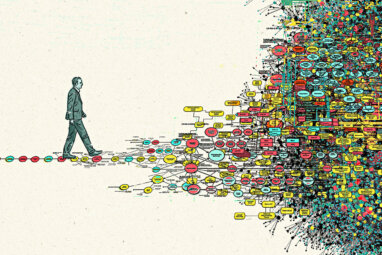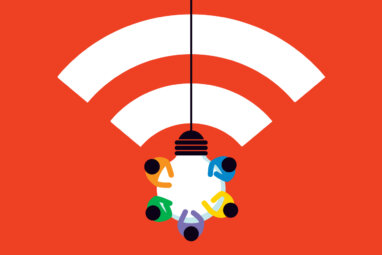
Diversity & Inclusion
Five Steps to Build and Sustain Diversity in Your Organization
Only by creating an equitable environment and supporting diverse populations in navigating it can we sustain diversity.


Only by creating an equitable environment and supporting diverse populations in navigating it can we sustain diversity.

This article describes a new workforce operating model that’s helping companies boost productivity.

These guidelines can help make your most challenging workplace conversations both constructive and respectful.

Modifying culture can help drive organizational change but requires clarity about the type of change leaders are seeking.

Less than a year after the launch of ChatGPT, there’s a lot of uncertainty around how fast it will move into the workplace — but many experiments are already underway.

Some workplace policies, practices, and interactions can make confident performers start to doubt their own competence.

Messaging around organizational culture should be differentiating, clear, credible, and consistent across teams.

Digital collaboration can steer innovators down a disruptive or incremental path, depending on how they use the tools.

A presenter at an MIT SMR symposium answers questions about using skills, not degrees, as the benchmark for hiring.

Two presenters from MIT SMR’s Work/23 symposium answer leaders’ questions about helping employees chart their own paths.

A presenter from MIT SMR’s Work/23 symposium answers questions about resilience and self-efficacy.

Facing opposition, businesses are backtracking on DEI commitments, but they should reconsider.

The U.S. Supreme Court decision banning affirmative action in college admissions will also reduce workplace diversity.

Focusing on the ROI from soft skills training is often key to getting companies to make a serious investment in them.

On the Me, Myself, and AI podcast, Duolingo’s Zan Gilani shares how AI personalizes the language app and motivates users.

A presenter at an MIT SMR symposium answers questions on how gender, age, and race can affect career advancement.

Researchers describe how having robots work alongside humans can help companies measure performance more accurately.

Brian Elliott, a presenter at MIT SMR’s Work/23 symposium, answers questions about going hybrid.

Seven ways managers can support their teams amid instability to help workers maintain a sense of control and motivation.

Explore MIT Sloan Management Review’s top 10 most popular articles of the year so far.